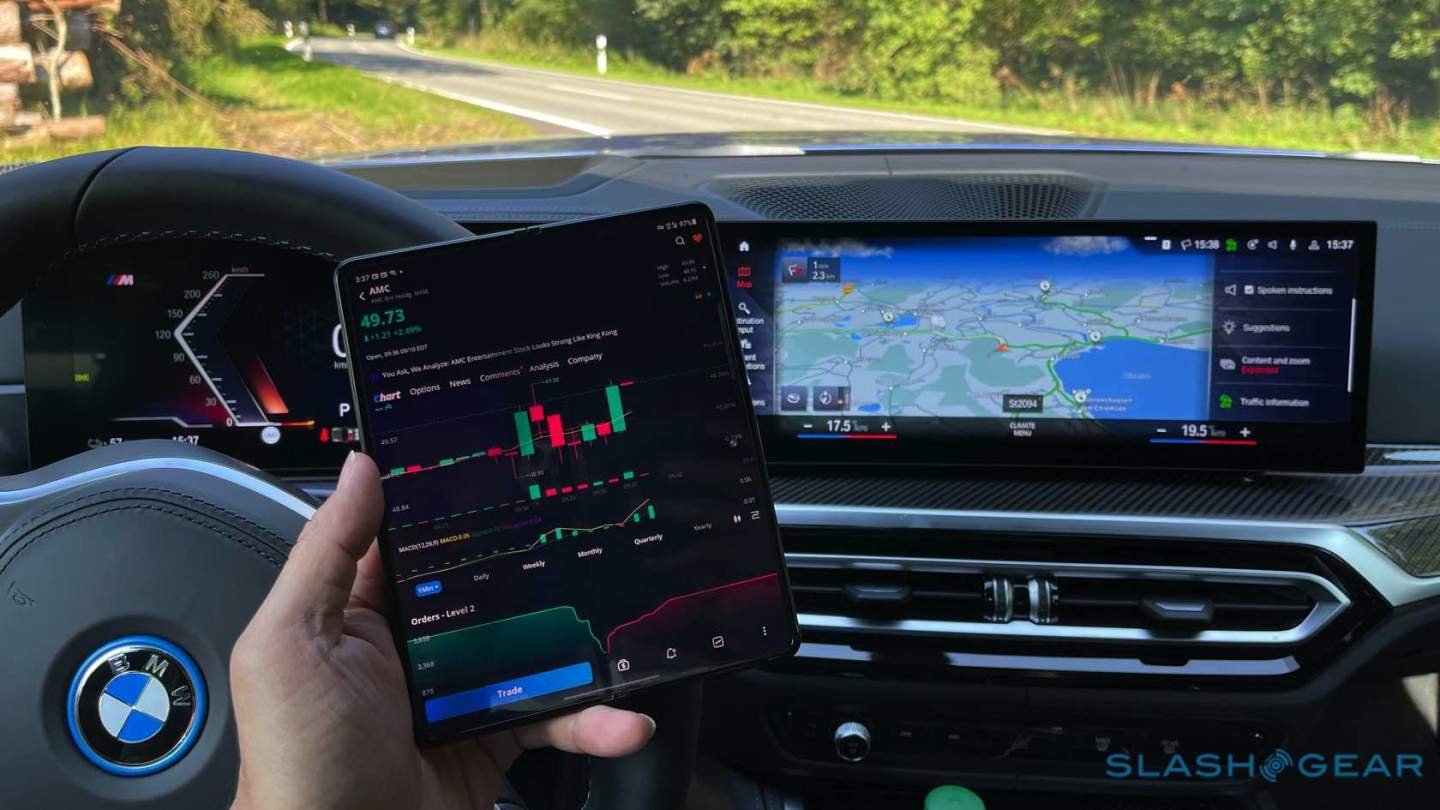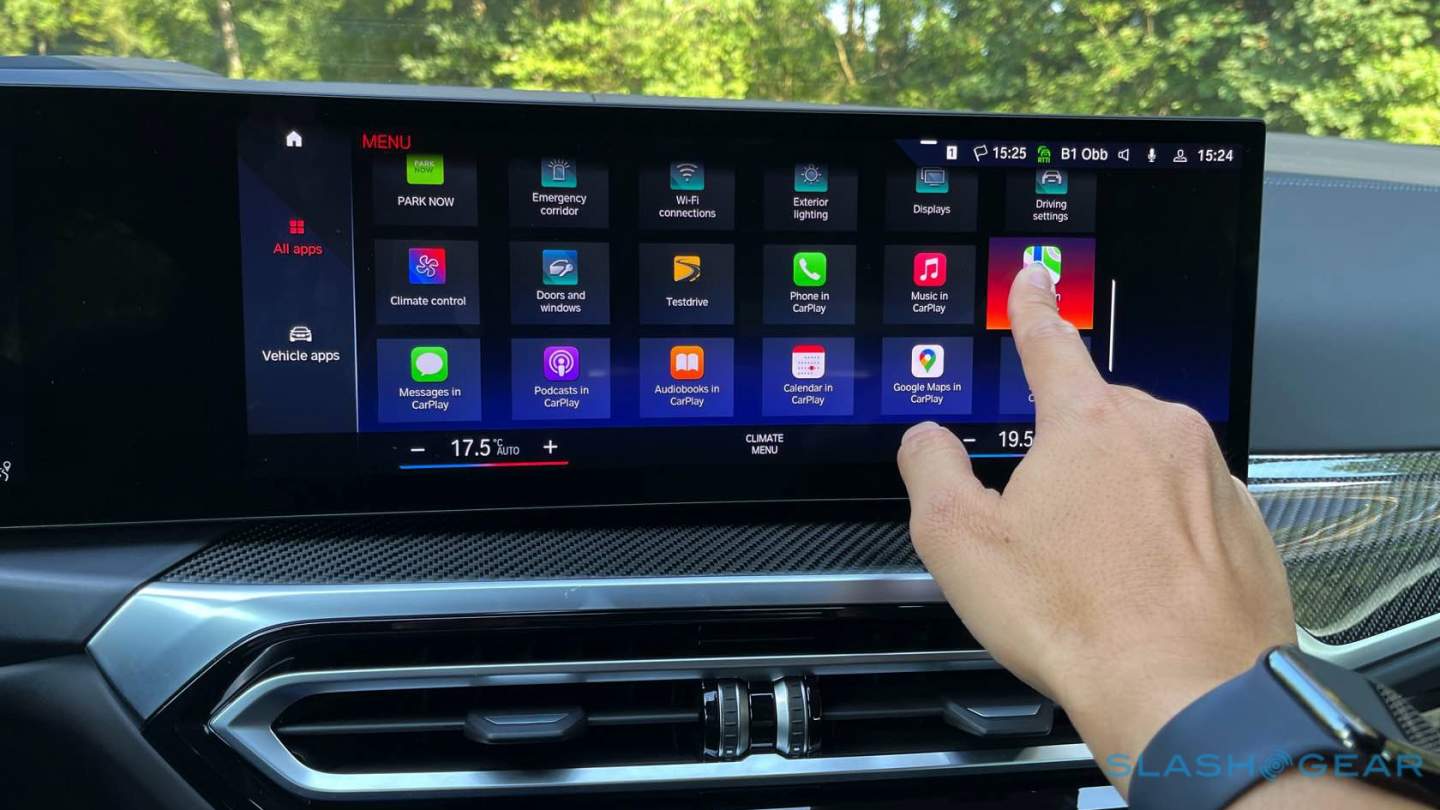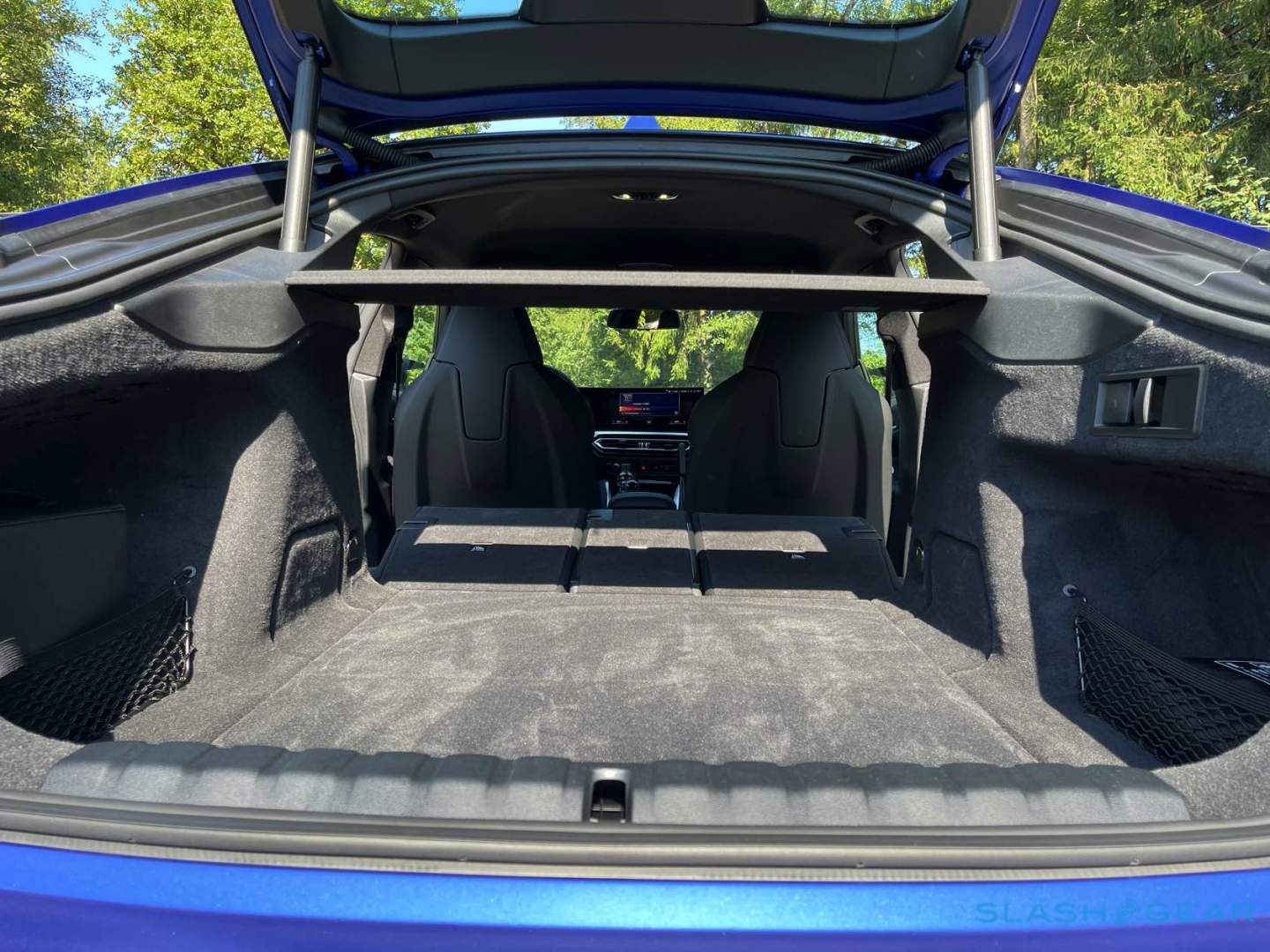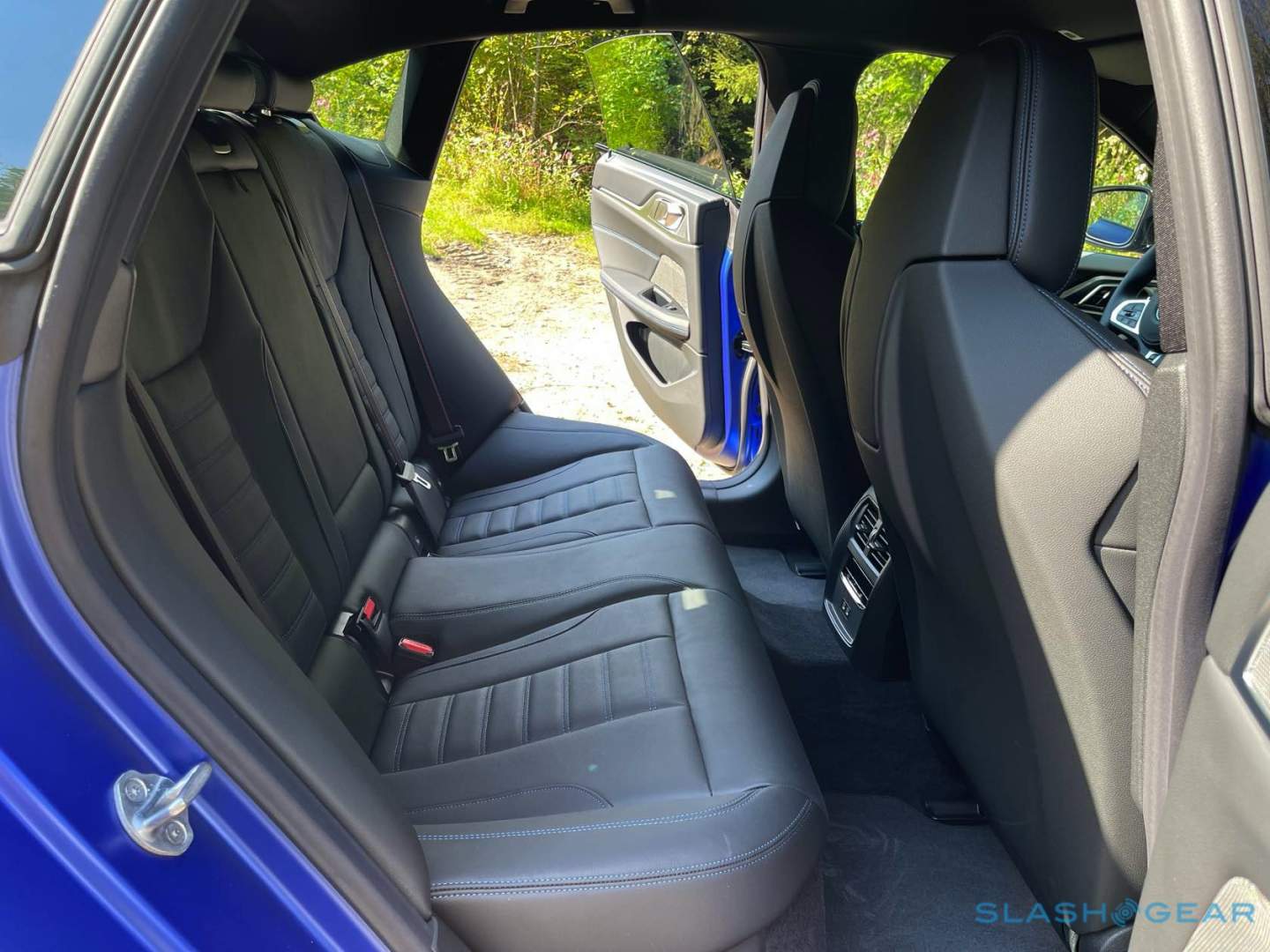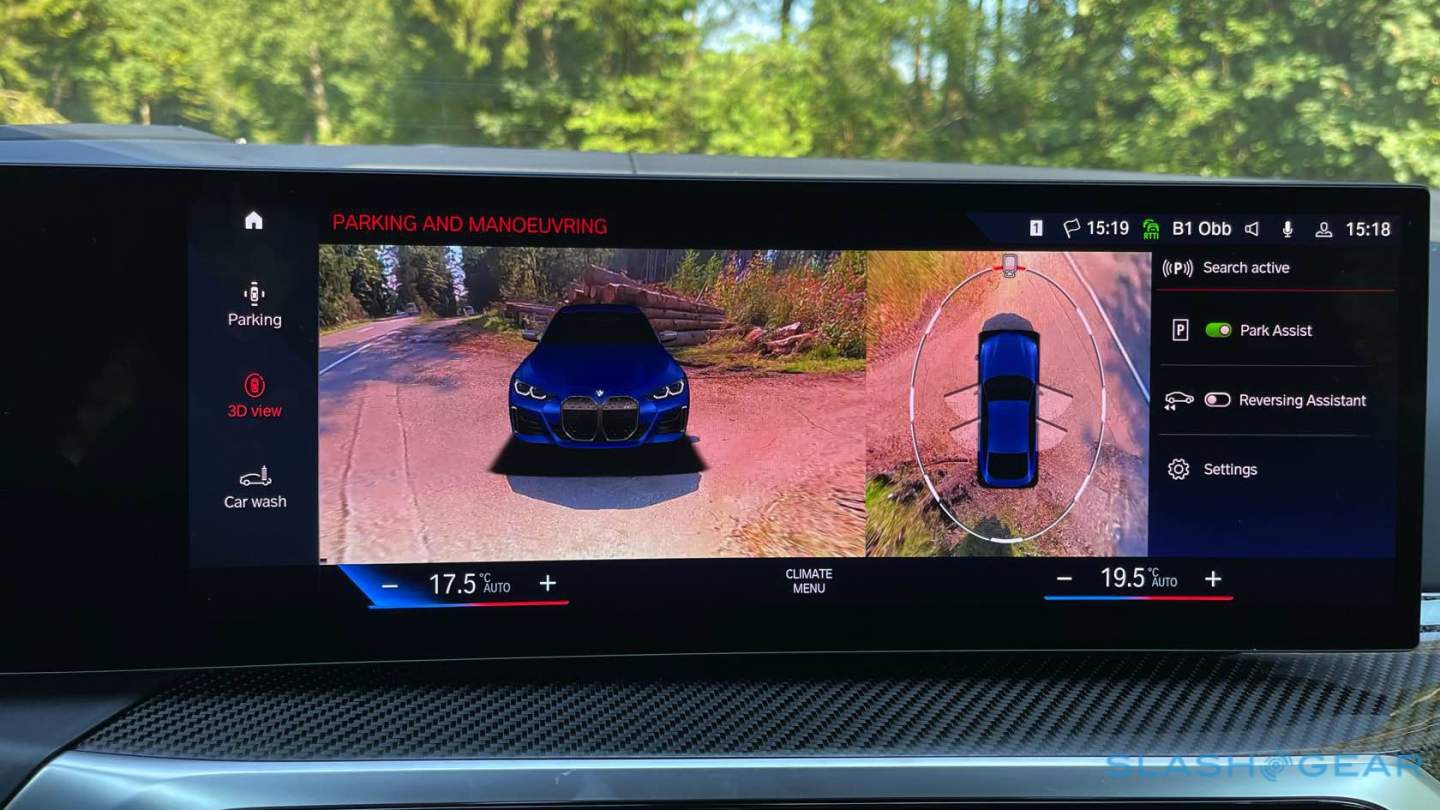2022 BMW i4 First Drive
BMW enjoys a challenge. How else to explain the 2022 i4, the German automaker's first attempt at an all-electric car that focuses on driving dynamics above all else. Don't let the relatively standard-looking BMW four-door sedan form fool you, either: the i4 will also usher in the first all-electric BMW M car, the future of the automaker's high-performance M division.
Officially christened the 2022 BMW i4 M50, it has two electric motors producing a combined 544 horsepower, and an estimated 323 miles of driving range from an 83.9 kWh high-voltage battery pack. They're numbers that already land the i4 neatly in the center of the sports sedan segment.
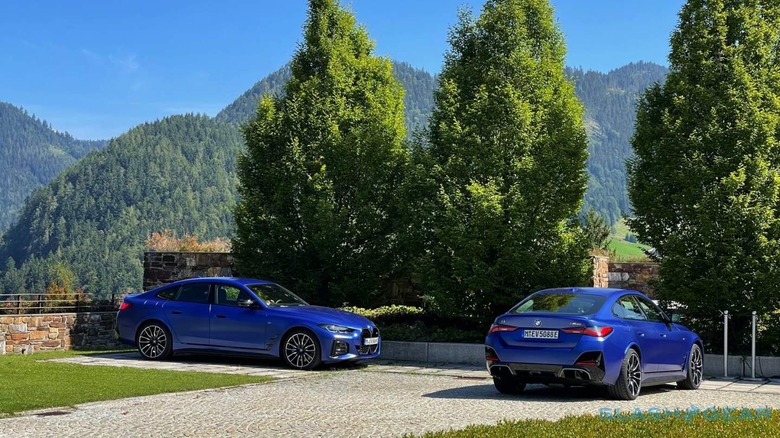
With the dual motors unleashing 586 pound-feet of torque to all four wheels – for electric AWD – the i4 M50 takes just 3.9 seconds to sprint from zero to 60 mph. Sure, that's four-tenths of a second slower than a gas-powered BMW M3 Competition but, with warm tires and a straight patch of road, I found out the i4 is just as quick as an M3 or M4. Despite BMW's conservative official numbers, the i4 is actually capable of accelerating to 60 mph in 3.6 seconds.
It's all the more impressive, given the i4 tips the scales at roughly 2,290 kg (5,058 pounds), just a sliver more than an M3 Competition xDrive. So yes, the all-electric i4 M50 is worthy of the legendary M badge, but is it as fun to drive as its gasoline-powered stablemates, as well as having more power than both the M3 and M4?
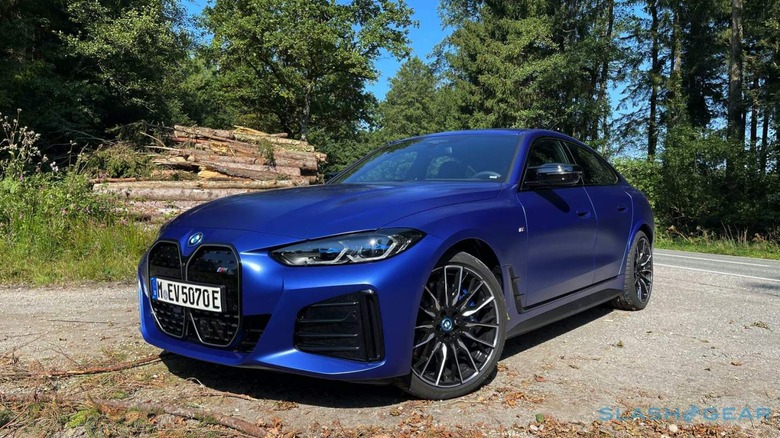
Though the lion's share of the attention may be on the hotrod i4 M50, BMW will also have a less powerful – and more affordable – version, the 2022 i4 eDrive40. The base i4 has a single electric motor for rear-wheel drive, and "just" 340 horsepower. Still, with peak torque at 317 pound-feet, the less-potent i4 eDrive40 can still rush to 60 mph from a dead stop in 5.7 seconds, so it's hardly slow by any measure.
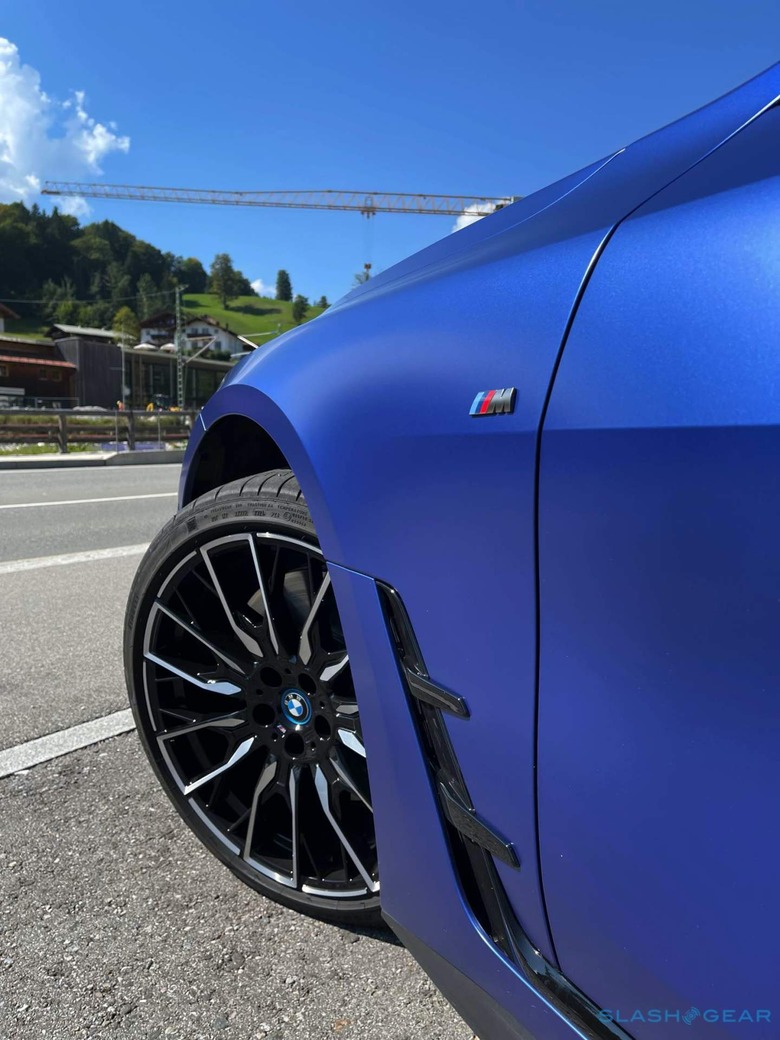
Like with the 2022 iX electric SUV, the i4's drive units are lightweight and more compact than BMW's previous electric propulsion systems. They also bring some distinct platform advantages: the i4 has a 53-millimeter lower center of gravity than a 3-Series sedan, for example. Combined with wider tracks, a longer wheelbase, lift-related dampers, and rear air suspension, the i4 can scoot like nobody's business without sacrificing ride comfort and refinement.
On the outside, there's more than a passing resemblance to the 4-Series Gran Coupe. The long hood, short overhangs, stretched wheelbase, and sloping roofline of the liftback hatch all have prior form in BMW's design language, but they also help with aerodynamic slipperiness. Those blanked-out – and oversized – kidney grilles are a dead giveaway that you're looking at something more than just a 4-Series Gran Coupe, however.
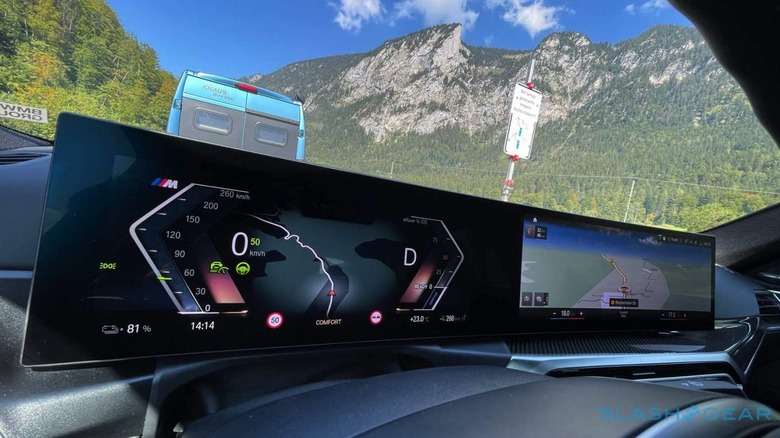
The i4's interior isn't a far cry from that of the 4-Series, either. As in the iX, the electric sedan isn't short on displays: a 12.3-inch digital instrument cluster sits alongside a 14.9-inch infotainment touchscreen, while BMW promises its "intelligent personal assistant" may cut down the number of times you actually have to reach out and tap that.
There's tri-zone automatic climate control with nanofiber filtering technology to purify the in-cabin air, frontal-collision warning, speed limit info, and lane departure warning as standard, while BMW's Driving Assistant Professional is available. That taps three front cameras, five radar sensors, and 12 ultrasonic sensors to blend together the active cruise control and lane control assistant on the highway; those same sensors also power the lane departure warning, reversing assistant, surround-view camera, remote 3D view, and many more features.
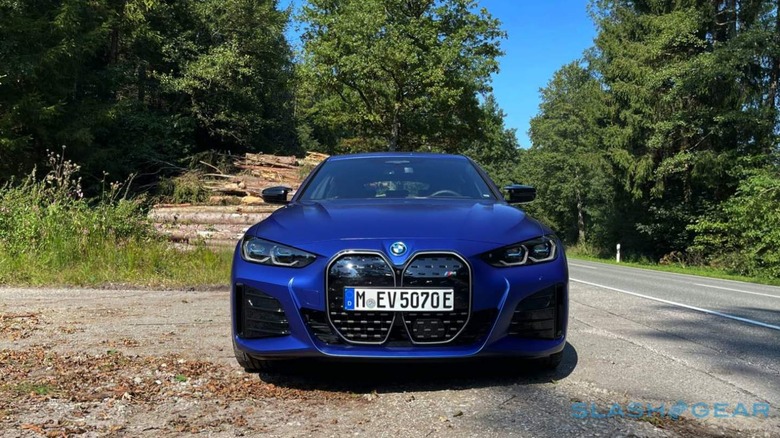
With its dual motors, meanwhile, the i4 M50 adds near-actuator wheel slip limitation to optimize traction, grip, and stability on all types of roads and in any weather condition. There's also adaptive M suspension, variable sport steering, and M sport brakes.
I'll be blunt, right now it doesn't feel quite as sharp or lively as its gasoline-powered M3 and M4 brethren. Sure, it scoots just as fast in a straight line, and the immediate thrust will push you hard to your seat. The steering, though, falls short of quite the same degree of feel to "read" the road surface, for all its precision and immediacy. In short, the i4 M50 does plenty to justify its position in the M catalog, but it's not quite ready to eclipse the rest yet.
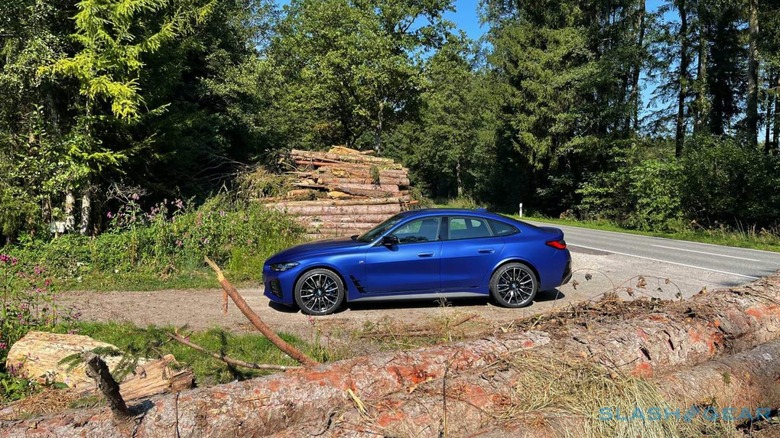
One place it does edge ahead, surprisingly, is in practicality. That's not what we've necessarily come to expect from performance cars, but features like the automatic liftgate and spacious loading bay – swallowing up 470 liters of luggage with the rear seats up, and up to 1,290 liters with the rear seats down – are welcome outliers in the sports sedan segment. The interior, meanwhile, offers decent accommodation for four adults, although taller individuals will find the hindquarters lacking in legroom and headroom.
The ride in Comfort mode is hard to fault, and the i4 whooshes quietly on the highway with only faint hints of tire roar and wind noise as you get up to speed. It's the smooth, dependable experience we know from BMW, only without the engine noise. Depending on how you like your electric car, you'll either be relieved or disappointed that the BMW i4 has no unusual quirks or "Easter eggs" lurking to surprise you. Instead, it has comfy yet well-bolstered seats, exceptional fit and finish, and the overall build quality you expect from an iconic German marque.
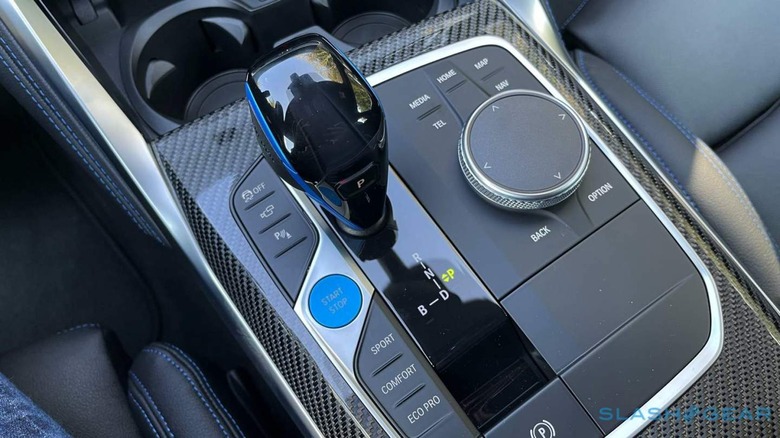
Rather than gimmicks, then, there's just a welcome attention to sustainable engineering and construction. BMW's fifth-gen eDrive units have a 93-percent efficiency factor without using rare-Earth minerals; the cobalt and lithium in the high-voltage batteries are sourced directly by BMW, before handing them over to battery cell suppliers, to better track the supply chain. The CLAR platform uses aluminum produced with power from solar energy plants. And, like in the iX, the i4 makes ample use of recycled and secondary raw materials: old fishing nets, FSC-certified wood, and cowhide tanned with olive leaf extracts all find their way into the cabin.
2022 BMW i4 Verdict
Perhaps what's most remarkable about the i4, then, is how for all its advances, and for all BMW's clear consideration in the platform and materials, it blends so well with the automaker's existing range. When the 2022 i4 officially goes into production this November – and the first US deliveries arrive by mid-2022 – owners may need to get used to explaining to their friends that yes, their new car really is all-electric.
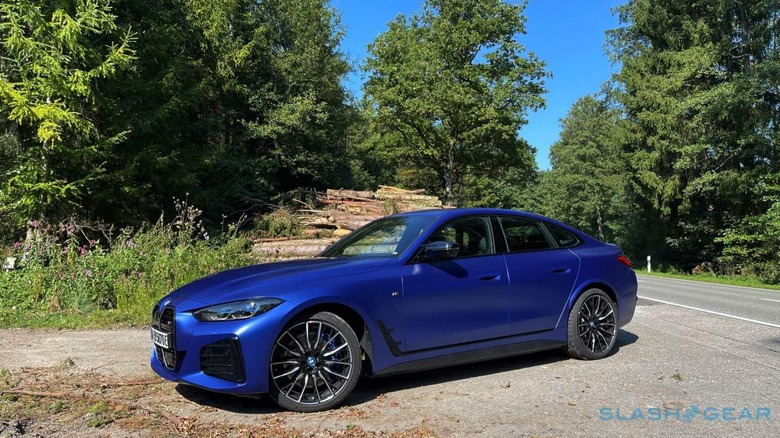
Should you need one final nudge, think MRSP. The base BMW i4 eDrive40 starts at $56,395 (including $995 destination), and the i4 M50 is at $66,895, and we haven't talked about potential state and federal incentives yet. On the other hand, the M3 competition xDrive starts at $77,895, and the M4 Competition xDrive will set you back at least $79,795.
BMW was among the first to jump into the EV space with the i3 hatchback in 2013. After that oddball, though, it lost its grip on electrification. With the i4, BMW is taking things far more seriously – in more ways than one – with a blend of cutting-edge tech and the traits owners most appreciate.The 2022 i4 may have been a self-imposed challenge, but it's one BMW has clearly risen to.

